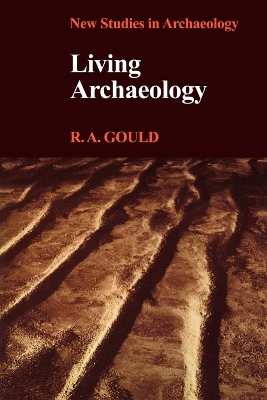'Living archaeology,' says Richard Gould, 'is ethnoarchaeology in the active voice'. Using as case studies his own observations of Australian Aborigines, and those of others, the author presents a unified theory of ethnoarchaeology. He demonstrates a reliable way to infer adaptive behavior in prehistoric communities by studying adaptive behavior in a contemporary society and noting the evidence of this behavior in material discards. Gould examines and dismisses the argument by analogy, long accepted as fundamental in earlier archaeological studies of this kind, and, as an alternative, he proposes the argument by anomaly. The book starts by recording a day in the life of a traditional Australian Desert Aborigine camp. the author identifies many social, verbal, and ideational interactions that would be difficult, if not impossible, to infer directly from the typical 'archaeological' remains of this non-material behavior. The book examines differences between actual as opposed to anticipated human behavior and suggests that understanding the reasons for these contrasts is what characterizes ethnoarchaeology at its best.
- ISBN13 9780521299596
- Publish Date 30 April 1980
- Publish Status Active
- Out of Print 6 September 2022
- Publish Country GB
- Imprint Cambridge University Press
- Format Paperback (US Trade)
- Pages 288
- Language English
